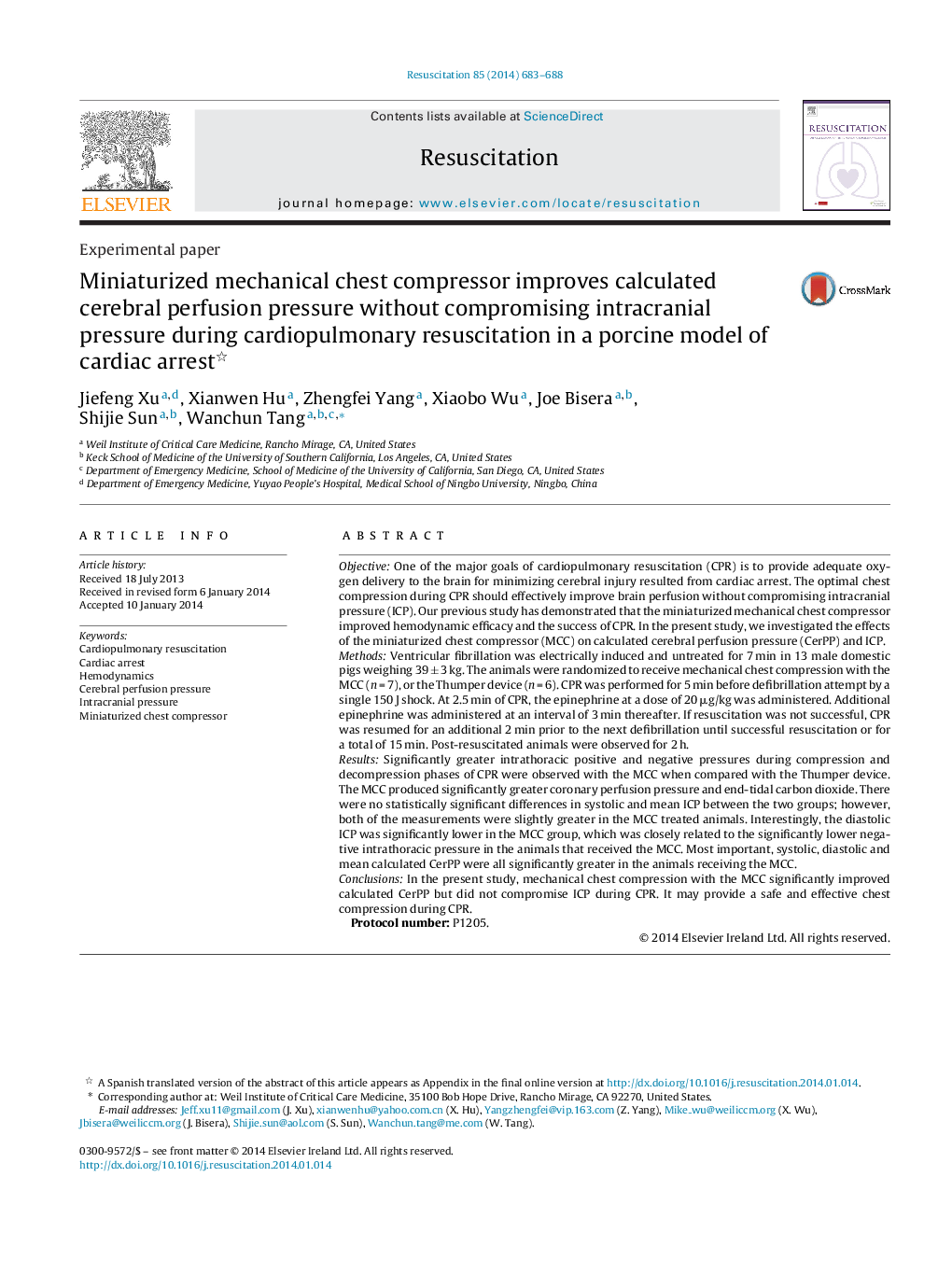| کد مقاله | کد نشریه | سال انتشار | مقاله انگلیسی | نسخه تمام متن |
|---|---|---|---|---|
| 5998420 | 1181440 | 2014 | 6 صفحه PDF | دانلود رایگان |
ObjectiveOne of the major goals of cardiopulmonary resuscitation (CPR) is to provide adequate oxygen delivery to the brain for minimizing cerebral injury resulted from cardiac arrest. The optimal chest compression during CPR should effectively improve brain perfusion without compromising intracranial pressure (ICP). Our previous study has demonstrated that the miniaturized mechanical chest compressor improved hemodynamic efficacy and the success of CPR. In the present study, we investigated the effects of the miniaturized chest compressor (MCC) on calculated cerebral perfusion pressure (CerPP) and ICP.MethodsVentricular fibrillation was electrically induced and untreated for 7 min in 13 male domestic pigs weighing 39 ± 3 kg. The animals were randomized to receive mechanical chest compression with the MCC (n = 7), or the Thumper device (n = 6). CPR was performed for 5 min before defibrillation attempt by a single 150 J shock. At 2.5 min of CPR, the epinephrine at a dose of 20 μg/kg was administered. Additional epinephrine was administered at an interval of 3 min thereafter. If resuscitation was not successful, CPR was resumed for an additional 2 min prior to the next defibrillation until successful resuscitation or for a total of 15 min. Post-resuscitated animals were observed for 2 h.ResultsSignificantly greater intrathoracic positive and negative pressures during compression and decompression phases of CPR were observed with the MCC when compared with the Thumper device. The MCC produced significantly greater coronary perfusion pressure and end-tidal carbon dioxide. There were no statistically significant differences in systolic and mean ICP between the two groups; however, both of the measurements were slightly greater in the MCC treated animals. Interestingly, the diastolic ICP was significantly lower in the MCC group, which was closely related to the significantly lower negative intrathoracic pressure in the animals that received the MCC. Most important, systolic, diastolic and mean calculated CerPP were all significantly greater in the animals receiving the MCC.ConclusionsIn the present study, mechanical chest compression with the MCC significantly improved calculated CerPP but did not compromise ICP during CPR. It may provide a safe and effective chest compression during CPR.Protocol number: P1205.
Journal: Resuscitation - Volume 85, Issue 5, May 2014, Pages 683-688
